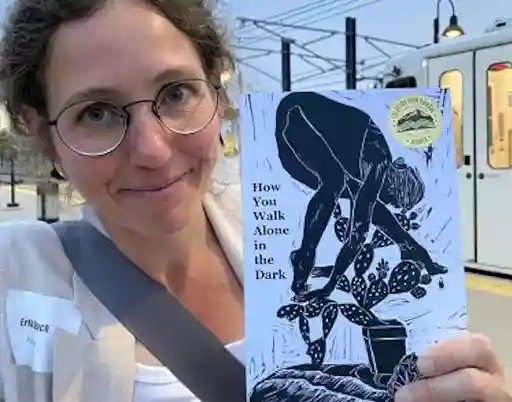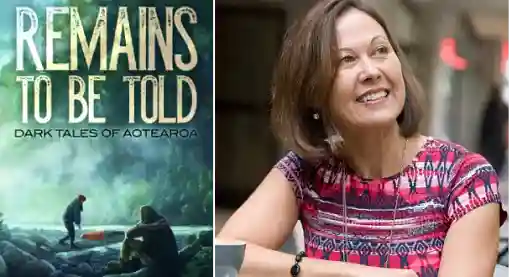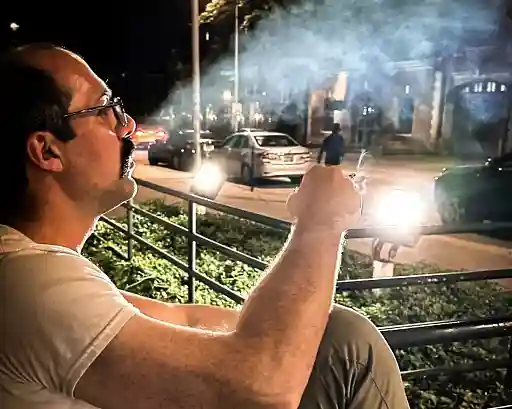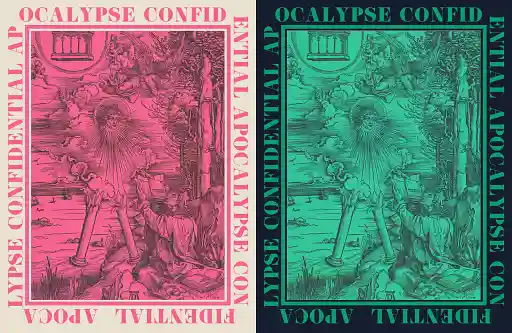Nicole Cushing is a Shirley Jackson Award-nominated author of multiple stand-alone novellas and dozens of short stories. Her work has been praised by the likes of Jack Ketchum, Poppy Z. Brite and Thomas Ligotti, and often leans toward the extreme side of horror. Her debut novel Mr. Suicide (Word Horde), about a teenager's descent into madness and degenceracy, is nominated in the Superior Achievement in a First Novel category for the upcoming Bram Stoker Awards. Her latest novella The Sadist's Bible is out now from 01 Publishing. Check out more on Cushing via her website, as well as LitReactor's review of Mr. Suicide.
I had a chance to chat with Cushing about her Stoker nomination, as well as some of the controversy surrounding Mr. Suicide. We also discussed her new novella, getting inside the heads of dark characters, and the general landscape of transgressive writing, now and in the future.
First off, congratulations on Mr. Suicide receiving a Stoker nomination. Can you tell us a bit about where this novel came from? Was it difficult getting into the twisted mind of the book's unnamed protagonist?
It’s hard for me to rationally explain where the novel came from, because writing—for me—starts out as more of an intuitive, emotional act than a rational one.
But I can tell you this: I’ve had a long history of depression, and I felt compelled to plunge into a deep, unblinking examination of some of my worst experiences with that malady. At around the same time as I was feeling this compulsion to write about depression, I heard a short excerpt from a talk given by Jack Ketchum called “Writing from the Wound." (It was played on an episode of the Odyssey Writing Workshop podcast.) After hearing that talk, I felt emboldened to give a wound-driven project a try.
In addition to my own experiences with depression, I grew up around many other kids who were—in their own ways—disturbed. One of them, for example, was a big goofy boy in high school who once (in an attempt at a crude joke) made a pretty disturbing comment that has stuck with me for all these years.
So the protagonist of the book is a composite created from my own experiences with depression, this big goofy boy that I knew, and other kids I knew growing up. Eventually, an independent entity arose in my brain that was greater than the sum of the parts. When I was writing this character, he obviously had no existence outside of my head. But he still felt quite real—as though he was in the room with me as I typed.
Getting into that twisted mind wasn’t difficult, because the intuitive aspects of the writing process made that happen. But it was difficult to stay in that twisted mind, day after day, for months on end. After a while, it felt like the little fucker was camped out on my sofa! If I recall correctly, I had to take a break from the darkness once in a while and chill out by watching Mystery Science Theater 3000, Svengoolie, or a Cincinnati Reds game. (All three are good for a few laughs.)
Love Svengoolie. I don't know of any other late night horror hosts still at it anymore, but if there's only one game in town, I'm glad it’s him.
He’s the best known and the most widely watched horror host working today. But there’s a whole gaggle of folks keeping the horror host tradition alive on the Internet, at live events at movie theaters, on public access TV, etc. Count Gore de Vol, Dr. Sarcofiguy, and Dr. Gangrene are three of my favorites.
I'll definitely check those out. You identify as a transgressive writer, and of course, we here at LitReactor are fond of transgressive writers, given our associations with Chuck Palahniuk, as well as hosting classes taught by John Skipp. Personally I think it's encouraging to see more extreme works being recognized in a big way like this. However, you've mentioned some controversy surrounding Mr. Suicide from critics and various other places. I even read in your blog that a freelancer actually backed out of interviewing you after he got a taste of your work. Do you see transgressive and more extreme works ever getting total acceptance in the literary world, or do you think transgressive writers will always face an uphill battle?
To be widely accepted in today’s literary world, one must first be accepted in the corporate world. And the corporate world is increasingly risk-averse. This doesn’t bode well for the future of transgressive fiction in Big Five publishing. Some might point to Hanya Yanagihara’s A Little Life as an example of a book that’s a transgressive offering from the Big Five and a critical darling, to boot. But, to me, that novel presented a gentrified version of transgressive fiction. It worked for many, many readers. (And it was a National Book Award finalist, too.) But it didn’t work for me.
The good news is that a transgressive writer can find a home in the small press and (in my case) the horror community. But even there, the decades-old backlash against the Splatterpunks has resulted in a climate where a transgressive writer probably has to work a little harder to establish literary bona fides than those who take an entirely subtle approach to the genre.
I’m not averse to subtlety. It’s a tool in my toolbox and I’m happy to use it. But I think, like any other tool, it can be overused. I don’t want to write gore for gore’s sake, but I don’t want to write atmosphere for atmosphere’s sake either. My approach is polystylistic (at times subtle and introspective, at times rife with gallows humor, at times offering graphic and emotionally honest depictions of sex, violence, and abuse).
I take this approach because it seems to be the most honest approach for the type of stories I tell. Trauma, by definition, isn’t subtle. So an honest depiction of trauma can’t be subtle. I hope that my success can help clarify that and make things easier for transgressive authors in the future.
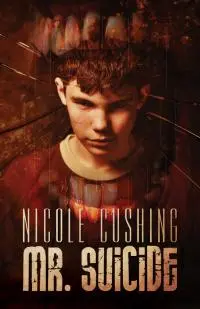 I just read an interview with David J. Schow (in Nightmare Magazine), who is credited with coining the term Splatterpunk. He touched upon this backlash that you mentioned, which was basically a group of horror writers—Robert Bloch and Charles L. Grant among them, I believe—expressing disdain or outright disgust toward the movement, because of its graphic nature. However, much of Splatterpunk combines graphic content with keen attention to character and situation, as well as solid narratives (as you do in your work). What books or short stories would you point the uninitiated toward that might convince readers of their, for lack of a better term, "literary merit"?
I just read an interview with David J. Schow (in Nightmare Magazine), who is credited with coining the term Splatterpunk. He touched upon this backlash that you mentioned, which was basically a group of horror writers—Robert Bloch and Charles L. Grant among them, I believe—expressing disdain or outright disgust toward the movement, because of its graphic nature. However, much of Splatterpunk combines graphic content with keen attention to character and situation, as well as solid narratives (as you do in your work). What books or short stories would you point the uninitiated toward that might convince readers of their, for lack of a better term, "literary merit"?
Rather than single out any particular writer, I would encourage readers to seek out the 1990 anthology Splatterpunks edited by Paul M. Sammon. (You can find a secondhand copy through the usual online booksellers.)
One of the reasons I love anthologies is that they expose me to a variety of voices in a short space. So if readers pick up that book they’ll get a sense of the breadth of the material and the wide array of approaches. As with any anthology, some stories have more merit than others. But I think a fair-minded reader will come away from the book convinced that the extreme horror of the time was, at the very least, more multifaceted than its detractors suggest. Sammon also included a significant amount of nonfiction in the anthology—so much, in fact, that it serves as a bit of a time capsule for the genre at that time. I’d love to see a small press get the rights to this one and put out a new edition.
In the acknowledgements for Mr. Suicide, you wrote, "...I'm not sure this book would exist without Jack Ketchum and the late Richard Laymon. Laymon's books were the first to offer the simple (but important) assurance that it was okay to use deeply taboo words in fiction. Ketchum taught me that extreme horror need not trivialize or sensationalize its subject matter; that extreme horror is just another way of being honest with the reader about how the world (at its worst) really works." This statement certainly applies to your latest release The Sadist's Bible. What can you tell us about the ugliness presented in this narrative?
There are several different types of ugliness afoot in The Sadist’s Bible. There’s the ugliness of sexual trauma and its emotional consequences. There’s the ugliness of sexual repression and its emotional consequences. There’s the ugliness that emerges when a broken, traumatized person and a broken, repressed person become entangled in one another. There’s the ugliness of apathy to suffering. There’s the ugliness of suffering itself. There’s the ugliness of institutional (and interpersonal) hierarchies and the groveling they inspire. There’s the ugliness of the more predatory and animalistic aspects of sexual and spiritual experiences.
Transgressive horror fiction is an excellent tool for depicting these various aspects of ugliness in a way that affords them their full depth and hideous grandeur. That’s what I’ve tried to do in The Sadist’s Bible.
Without giving too much away, the final scenes in The Sadist's Bible reminded me of a way more fucked up version of Midian, the monster realm in Clive Barker's Nightbreed. Was Barker an influence on your work at all, either with The Sadist's Bible or otherwise?
My work has often been likened to Barker’s, but I don’t think that’s a result of his direct influence on me so much as the coincidence that our brains are probably wired in a similar fashion.
Ever since I was six years old, I’ve experienced strange, half-hallucinatory daydreams and vivid, immersive nightmares. Many (if not most) of these have been surreal and related to metaphysical subjects. When I write, I often draw on these visions (for lack of a better word). Hence my similarity to Barker.
I still have these experiences from time to time.The final scenes of The Sadist’s Bible were inspired by a daydream that suddenly came to me while I sat on a rooftop in New Orleans a few years ago. (I should probably add, for the benefit of your readers, that no alcohol or drugs have ever been involved in these visions.They just arise spontaneously, maybe two or three times a year, during periods of rest.) Over the course of the revision process I added additional material beyond that initial vision in New Orleans. But the vision kicked things off.
I don’t believe any of these visions are legitimate encounters with the supernatural. They’re just extremely vivid journeys into the imagination, sprouting from the fertilizer of a hyper-religious upbringing. I even hesitate to call them “visions”, because that makes me sound like I’m completely out of touch with reality. But that’s the best word I can think of to describe them. (Especially the ones that happen when I’m awake.)
Now, having said all that, I have enjoyed Barker’s stuff. I’m particularly fond of the original Hellraiser film, the novella The Hellbound Heart, his short story “The Forbidden”, and his play The History of the Devil. But I’ve never read any of his full-length novels. I hope to remedy that in the near future.
The way that Barker has influenced me the most, actually, is in how he carries himself as an author and artist. He’s comes across as a fascinating man. I love going onto YouTube and watching interviews he’s given over the years. He strikes me as someone with one foot on Earth and another planted firmly in the Realm of Dreams. That’s how I see him. I’ve never really considered it before, but I guess I’m a little like that, too. Neither Barker nor I would make very good middle managers.
Do you have any publications, appearances, or otherwise exciting news coming up that you'd like to share with us?
I’m working on a new novella. After that, I hope to get back to working on my next novel (which is at least half-done, at this point).
I’m also going to be teaching a workshop in May at StokerCon (the workshop’s called Goal Setting for Your Writing Career or Hobby). I love teaching and am really looking forward to that. I’ll have a signing in the dealer’s room at that con, too. As you might imagine, Vegas isn’t exactly this Hoosier’s natural habitat. So this should be interesting!

About the author
Christopher Shultz writes plays and fiction. His works have appeared at The Inkwell Theatre's Playwrights' Night, and in Pseudopod, Unnerving Magazine, Apex Magazine, freeze frame flash fiction and Grievous Angel, among other places. He has also contributed columns on books and film at LitReactor, The Cinematropolis, and Tor.com. Christopher currently lives in Oklahoma City. More info at christophershultz.com
